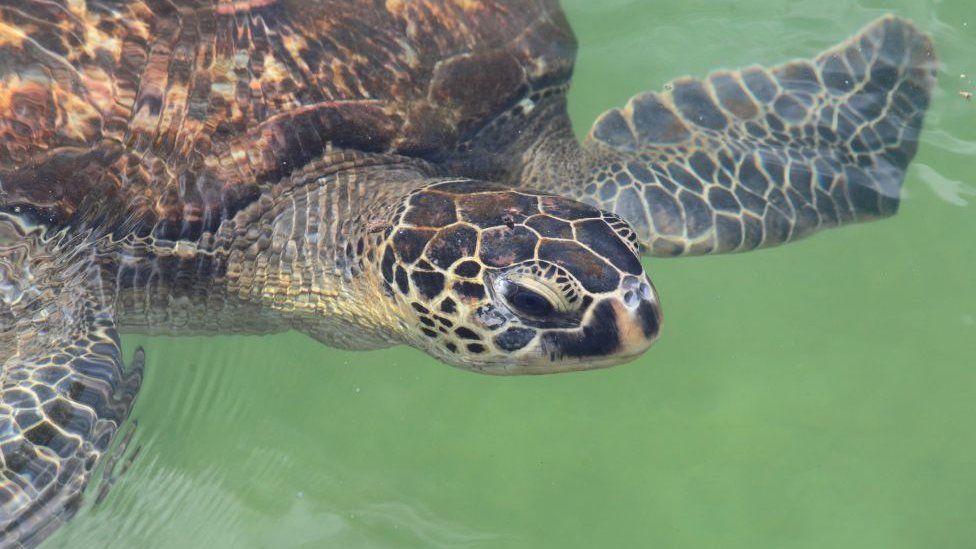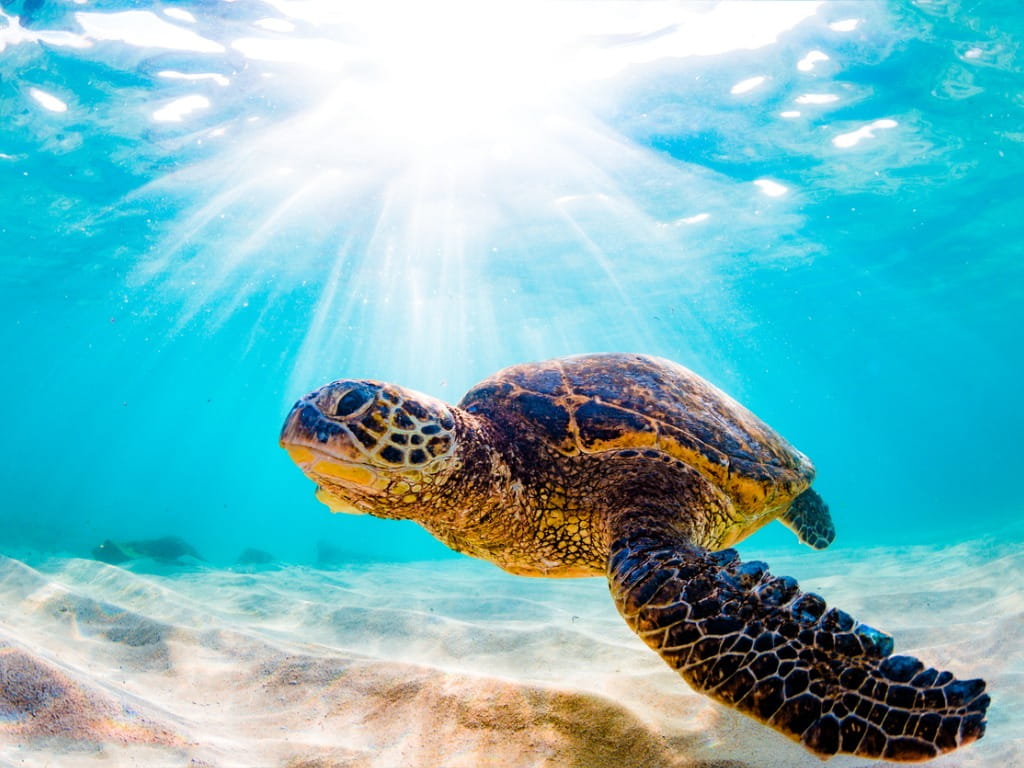Sea turtles are not poisonous; they do not produce any venom or toxins that can harm humans or other animals. These fascinating marine creatures serve important ecological roles and should be treated with care and conservation efforts.
Sea turtles are captivating creatures that inhabit the oceans and have long fascinated humans with their graceful movements and ancient origins. However, one question that often arises is whether sea turtles are poisonous. We will provide a straightforward answer while delving into the significance of these animals in our ecosystems.
Understanding the nature of sea turtles and their role in the environment is essential for promoting their conservation and protecting these remarkable species. So, let’s uncover the truth about sea turtles and whether they possess any harmful or toxic properties.

Credit: www.bbc.co.uk
Types Of Sea Turtles
Sea turtles are fascinating creatures that inhabit oceans around the world. There are several species of sea turtles, each with its own unique characteristics and habitats.
| Types of Sea Turtles | ||
|---|---|---|
| Green sea turtles | Loggerhead sea turtles | Leatherback sea turtles |
| Hawksbill sea turtles | Olive ridley sea turtles | Kemp’s ridley sea turtles |
Green sea turtles are known for their distinctive green color and can be found in tropical and subtropical waters. Loggerhead sea turtles, on the other hand, are named for their large heads and powerful jaws. Leatherback sea turtles are the largest of all sea turtles and have a unique leathery shell.
Hawksbill sea turtles, as their name suggests, have a narrow, pointed beak-like mouth which enables them to feed on sponges. Olive ridley sea turtles have a heart-shaped shell and are famous for their mass nesting events known as arribadas. Kemp’s ridley sea turtles are the smallest and most endangered of all sea turtles.
Each sea turtle species plays a vital role in maintaining the balance of marine ecosystems. While there are no known cases of sea turtles being poisonous, it is important to admire and protect these creatures from a respectful distance to ensure their well-being.

Credit: www.turtle-foundation.org
Sea Turtles’ Diet And Feeding Habits
Sea turtles exhibit a diverse range of feeding habits, each species having its own unique dietary preferences. The green sea turtle is primarily herbivorous, feeding on seagrass and algae, playing a crucial role in maintaining ocean ecosystems. Loggerhead sea turtles have a carnivorous diet, preying on various invertebrates such as crabs, clams, and sea urchins. Leatherback sea turtles have a specific preference for jellyfish, consuming significant quantities due to their gelatinous nature. The hawksbill sea turtle, on the other hand, has a sponge-based diet, feeding on different species of sponges found on coral reefs. Olive ridley sea turtles are omnivorous, consuming a mixture of plants and animals, including shrimp, crabs, and seagrass. Lastly, Kemp’s ridley sea turtles have a diet consisting mainly of crustaceans, specifically crabs and shrimp.
| Sea Turtle Species | Diet |
|---|---|
| Green Sea Turtle | Herbivorous: seagrass and algae |
| Loggerhead Sea Turtle | Carnivorous: invertebrates such as crabs, clams, and sea urchins |
| Leatherback Sea Turtle | Jellyfish diet due to their gelatinous nature |
| Hawksbill Sea Turtle | Feeds on different species of sponges found on coral reefs |
| Olive Ridley Sea Turtle | Omnivorous: mixture of plants and animals including shrimp, crabs, and seagrass |
| Kemp’s Ridley Sea Turtle | Primarily feeds on crustaceans, namely crabs and shrimp |
Toxicity And Sea Turtles
The myth that sea turtles are poisonous is a common misconception. Many people believe that these majestic creatures possess toxic properties, but this belief is unfounded. The confusion may stem from the fact that sea turtles can consume certain types of marine plants that contain toxins, such as seagrass and algae. However, these toxins do not accumulate in the turtles’ bodies and are excreted without causing any harm. There are no known instances of sea turtles being toxic to humans or other animals. While it is important to recognize the potential risks associated with interacting with wildlife, it is essential to dispel false information and understand the true nature of sea turtles. These fascinating creatures play a vital role in marine ecosystems and should be respected and protected.

Credit: www.premiumtimesng.com
Conclusion
While it is true that some sea turtle species have toxic levels of substances like heavy metals and bacteria in their tissues, it is incorrect to say that sea turtles are poisonous. Instead, they play a vital role in their ecosystems as they serve as indicators of environmental health.
It is crucial for us to protect these magnificent creatures and their habitats to ensure their survival for future generations.





